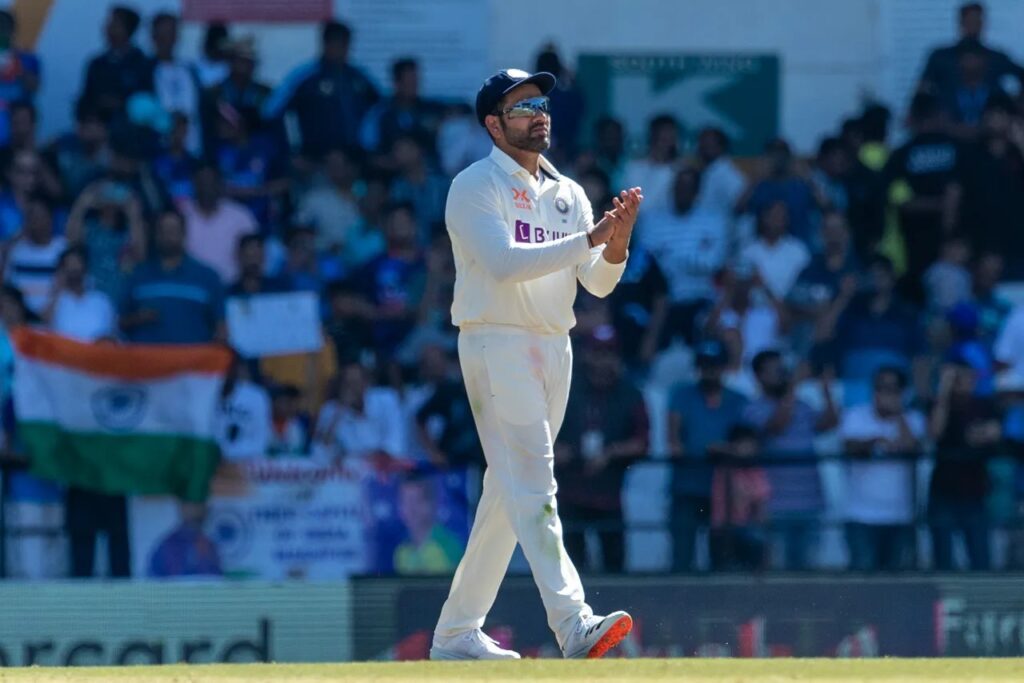
It was days before the Brisbane Test in January 2021, and I had broken the news that Jasprit Bumrah was injured and unlikely to play a part in the decider. Understandably, the news went viral within minutes, and social media was abuzz with what it meant for India’s chances at the Gabba. For me, this was routine work, and I did not think much till Rohit Sharma messaged. It was just before noon that he sent a long WhatsApp message requesting not to break any injury related news. The Bumrah update, Rohit argued, could help Australia and allow them to plan better for Brisbane.
It was a tricky request. We are in the business of news, and it is part of our job to break important updates for our viewers and readers. And here was the Indian vice-captain, now captain, requesting us not to do so for this one Test match. I promised Rohit I would respect his request, for that’s what I believed was more important in the circumstances. Rohit, on his part, understood where I was coming from and has since then acknowledged multiple times that I kept my word.
The question is, why did Rohit do what he did? Did he not know that, as media professionals, we needed to break news? That by reaching out to us, he was taking a chance? Most importantly, the boundary between the player and the media was blurred for a moment, and that is not something we see happening too often. But that’s how Rohit is. He will go to any length to ensure that his team benefits. And if that means he has to do things differently, he won’t hesitate to do so.
Ask his teammates, and almost all will swear by Rohit the leader and captain. He leads by example, and makes the youngsters feel at ease when they are new to the dressing room. Not only does he take them out for dinner to ease them into the pressures of international cricket, he always maintains that as a leader, he is the least important member of the team. It is his job to help his teammates. “You can’t lead a cricket team in isolation,” he once said. “You have to understand, and talk to each and every player in your team to know what they are thinking and how they are approaching the game.
“You have to make sure that they buy into your strand of thinking, for only then can a successful cricket team get created. At Mumbai Indians, we have many stars in the team, and it has always been challenging as the captain of the side. I have thoroughly enjoyed the experience, and I have learnt a great deal from doing so. You learn to understand human minds better, tackle situations better, get exposed to different cultures and ideas, and turn into a better human being.”
He, thereafter, highlighted how things had changed with him as captain over time. “With time, you realise that as the leader, you are the least important member of the team,” he said. “That’s how I now think, for if I have to take the team forward, I can’t do so myself without the support of the boys. That’s why I think I am the last member of the team, and the other ten are more important than me. In this way, I can get the best out of each of them.”
These are the words of a mature cricketer, of someone who has been around for a decade, and is comfortable as leader. He has no insecurities, and that’s what has started to show with Rohit.
Many have said that his IPL form was a worry going into the World Test Championship (WTC) final. The two are so vastly different that I don’t think it is. It is all about what Rohit thinks. Is he comfortable going out there, and taking guard against Mitchell Starc and Pat Cummins? Is he fully switched on? Is he confident that he can do what he did against England in England in 2021?
He played the IPL in 40-degree heat. The temperature at The Oval will be 15C to start with, and go up to the mid-20s, at most. He played the IPL on wickets which were mostly slow and low. The Oval will the most bounce that there is on offer in England. He played the IPL knowing that he had to hit most balls in the powerplay to get Mumbai off to a good start. At The Oval, his endeavour will be to leave as many balls as possible to start with, and respect the conditions.
The challenges are vastly different, and there is no reason to believe that Rohit will not be up to it. Knowing him well, it can be said that mentally, he will be right up there. He knows he is on the cusp of history, and that a win at The Oval will see him ranked alongside an Ajit Wadekar or Kapil Dev as a leader. It is his tryst with greatness as a leader, and few will suggest that Rohit isn’t ready for the challenge.
This is one trait that binds greatness — the zeal and the willingness to embrace the occasion, and the deep-seated desire to be a hero. Rohit is no different. As one of the best of this era, he knows he can win games for India. In doing so, he can raise his bat to the appreciation of the crowd and the millions of fans who idolise him. He has struggled to get to where he has. He has looked ugly at times. But true to his motto, he has never given up, and he continues to live his dream of playing and winning games for India. The WTC final will be no different.
ALSO READ: World Cup Venues and Schedule To Be Unveiled During WTC Final



